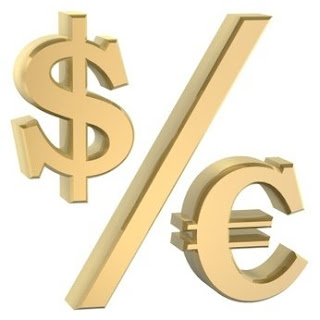
USD - Dollar Drops on Poor Economic Data
Yesterday the Dollar depreciated against all its main currencies crosses. The greenback's biggest drop was against the EUR, as the EUR/USD pair rose above the 1.4150 level. The Dollar also dropped against the Pound and the Yen as well.
The Treasury International Capital (TIC) published the Long-Term Purchases report yesterday. This report measures the difference in value between foreign long-term securities purchased by US citizens and U.S long-term securities purchased by foreigners during May. The figures showed a negative balance of $19.8 billion. The data also showed that China's holding of U.S treasury securities topped $800 billion. The gigantic debt has raised concerns that it might have the potential to erode the value of the Dollar in the long term.
Also yesterday, the Philadelphia Manufacturing Index, which is used to measure the business conditions in the Federal Reserve district, was published. The report showed a -7.5 mark, which means that the factory activity in the district has contracted for the 10th consecutive month in July. This contributed to the Dollar's downfall as well.
As for today, very important housing data are scheduled from the U.S. At 12:30 GMT, both the Building Permits and Housing Starts indicators will be published. The two are leading gauge of the housing sector in the U.S, and has the potential to severely impact the market. According to current forecasts, the housing sector has shown relatively positive figures in June. If the actual result will be similar or even higher than forecasts, the USD might be able to correct yesterday's slide. Traders are advised to follow the publications, and take advantage of their impact on the market.
EUR - EUR Hits 2 Week High against the Dollar
The EUR continued its bullish trend against the Dollar yesterday, and the EUR/USD is currently trading near the 1.4130 level. The EUR rose against the Pound as well and declined slightly against the JPY.
The EUR climbed against the Dollar as poor data was released from the U.S economy and Crude Oil's prices rose, which further weakened the Dollar. This drove the European currency to a 2 week high against the USD.
The positive data from the Euro-Zone leading nations also supported the EUR yesterday. The French Consumer Price Index rose 0.1% in June, showing that fears from deflation are very unlikely, resulting in a temporary relief for the crisis-hit economy. The Italian Trade Balance, which measures the difference in value between imported and exported goods and services during May, rose by 1.19 billion EUR. This has a crucial impact on the Italian economy, which relies greatly on its exporting activity.
Looking ahead to today, the only significant data from the Euro-Zone will be the European Trade Balance. Analysts forecast a 1.2B result, which means that the exporting activity in the Euro-Zone was larger by 1.2 billion EUR from importing during May. If the actual result will be similar to forecasts, it will be the first positive result in 13 months. In turn, this may have a positive effect on the EUR.
JPY - JPY Records Mixed Results against the Majors
The Yen underwent an extremely volatile session against the major currencies yesterday. Although the Yen did not see a sharp depreciation yesterday, it is about to mark the biggest weekly loss against the EUR in two months, following an extremely bearish week. The most significant publication from the Japanese economy was the Tertiary Industry Activity report. The report failed to reach expectations for a 0.3% rise, as the actual result showed that the value of services purchased has dropped by 0.1% in May.
As for now, current expectations are assuming that the Yen may fall against the EUR on speculations an advance in stocks will increase demand for higher yielding assets. The JPY is known as a currency which rises in times of global financial crisis, and it seems that the rising stocks could be a leading sign for the financial improvement which has the potential to significantly weaken the Yen.
Crude Oil - Crude Oil Completes Bullish Week
Crude Oil continued to hold its yesterday, and a barrel of Oil is currently traded for $62.70. Crude Oil is currently heading for its first bullish week in more than a month.
Crude rose as a result of two leading factors. One, the bearishness of the USD supported the price of Oil. Crude Oil's prices are valued in Dollars, and thus any depreciation in the USD's value has the potential to further push-up Oil prices. Higher global equity markets also restored optimism that an economic recovery is impending.
An improvement in economic conditions is set to increase demand for Crude Oil, which will of course hike Crude Oil prices. This week might be acknowledged as the first strong sign that investors have regained their faith in Crude Oil as a long-term investment. Traders are now advised to follow the news from the strongest economies and especially from the U.S in order to predict Oil's direction for the coming weeks. It seems that as long as the news will show that the world is pulling out of recession, Crude Oil prices are likely to rise.
Article Source - U.S. Building Permits Data to Drive USD Trading Today





